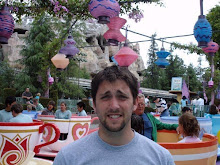The film is a sparse drama set in a snow fallen small town that while showing the cycle of relationships reflects on the pain and loss that can be born from mediocrity in effort. Sam Rockwell, brilliant as always, plays Glenn Marchand, a recently divorced recently born again Christian who skirts the line of worthlessness and significance as he attempts to regain the life he once had. His ex, Annie, played against type by Kate Beckinsale, is obviously done with any relationship that the two could possibly produce and is self-destructive with her other relationships in the small town. The two stumble through their parental duties until the rising action of the film when the here-to-for pawn in their relationship embodied by the little girl goes missing.
Backinsale’s character works in a shabby Chinese restaurant the type you know is about as Chinese as a fortune cookie, while Rockwell works as a wholesale carpet dealer attempting to parlay his newfound religion into sales and advancement. The town’s high school band plays a soulless and mournful version of Peter Gabriel’s Sledgehammer while the band leader screams for them to feel it. Meaning – the tangible qualities of the town are additions to the morose feelings the jilted relationship emanates, it’s all rather depressing.
There are four central relationships that this film attempts to portray that displays four distinct stages in relationships in general: birth (young love), angst (a couple who is being torn apart by infidelity), acceptance (a couple divorcing due to infidelity), and death (a couple destroying their relationship and each other). Rockwell and Beckinsale play the latter of the four who are falling deep into a gulch of self loathing and after the loss of their daughter Rockwell’s character is sunk. It’s all rather depressing.
My biggest complaint in this film lies with its youngest actors and the writing done for them. They are given poor dialog and seemingly worse motivation. Their relationship seems born of confidence and a mutual attraction both of which are hard to come by in high school. This isn’t to say it is impossible, but with the characters, I find it to be against the grain.
But overall this film is a well done yet miserable. Despite the young love flub the relationships are stark and realistic. Accolades are deserved all around, but I fear none will come, which is all rather depressing.
7 out of 10 – a great film that should be seen, but I would never want to watch it again thus it loses a point.



